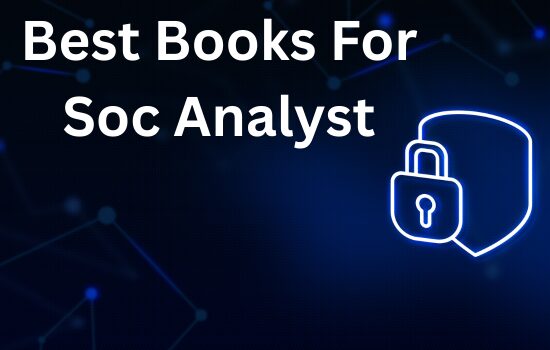Introduction: How to Become a Soc analyst
The cyber Security landscape is quickly changing in this modern word where cyber-attack are reported on the daily basis, So that’s the main reason for Soc analyst vale in cyber security field.
Widespread data breaches, ransomware, and phishing scams make headlines, costing companies billions each year. Pillars of protection and battlefield for cyber-attacks Cybercrime is on a never-before-seen rise.
A SOC analyst constantly monitors, detects, and responds to cybersecurity threats. They operate as part of a SOC team to monitor logs and analyze network traffic, investigating alerts and mitigating risks before they escalate.
As organizations give priority to strong cybersecurity frameworks, SOC analysts have become invaluable and hence this role is one of the most rapidly expanding roles in the domain of IT.
SOC Analyst Role Description and Key Responsibilities
- Monitor security tools such as SIEM (Security Information and Event Management), IDS/IPS, and firewalls.
- Look into alerts to determine what’s a false positive and what’s a real threat.
- Conduct vulnerability assessment and threat hunting
- Work with incident responders to mitigate breaches.
- Record incidents and review security practices.
Why Become a SOC Analyst?
High Demand: The U.S. Bureau of Labor Statistics estimates cybersecurity jobs will grow 35 percent by 2030.
Attractive Salaries: As a Junior SOC analyst, you can earn anywhere between 60k–60k–80k per year and for a senior position, salaries go way over 120k.
Progressing in Your Career: Shift to positions such as Threat Hunter, Cybersecurity Engineer, or CISO
Types of SOC Analysts
SOC teams are hierarchical, with levels of analysts graduating into higher levels of knowledge. There are also specializations based on other organizational requirements:
Tier 1 SOC Analyst (L1)
Function: Confirm potential threats before assignment; filter false positives; record incidents.
Requirements: Awareness of networks, malware, and SIEM tools.
Tier 2 SOC Analyst (L2)
Role: In-depth investigations; malware analysis; and remediation.
Tools: Advanced threat detection, digital forensics, and incident response.
SOC Analyst Tier 3 (L3/Senior)
Role: Threat hunting, pen-test, strategy development.
Skills: Reverse Engineering, Threat Intelligence, Cloud security
Specialized Roles
Threat Intelligence Analyst : Researching new threats and attack patterns
Cyber Security Analyst: Protects an Organization from Breaching.
Incident Responder: Oversees discovery, containment and recovery during outages.
SOC Analyst: Complete Roadmap to Become a SOC Analyst
Launch your career with this step-by-step guide, including courses, certifications, and hands-on practice.
Getting Started: Step 1: Build Foundational Knowledge
Education:
Preferred: Bachelor’s degree in cybersecurity, computer science, or IT Alternatives are bootcamps or self-study.
Core Skills to Learn:
- Networking (TCP/IP, DNS, VPNs)
- Windows, Linux Operating Systems
- what do you need to know. Cybersecurity: basics
Recommended Courses:
- Google Cybersecurity Professional Certificate (Coursera): SIEM, IDS, compliance frameworks.
- CompTIA Security+ (Udemy): A Security+ exam prep course.
- Comptia Cysa+
- Cissp Course
- Cisa course
- Sans Sec450: Blueteam fundamental course
Books:
Breaking Down Cybersecurity Core Concepts: “Cybersecurity for Dummies” By Joseph Steinberg
Network Security Essentials by William Stallings: Protocols and encryption explanation.
Step 2 : Get familiar with SOC tools and technologies
Key Tools For Soc Analyst:
- MITRE Attack Framework
- SIEM Platforms: Splunk, IBM QRadar, Microsoft Sentinel, autre.
- Threat Detection — Snort (IDS), Wireshark (packet analysis).
- Vulnerability Scanners: Nessus, OpenVAS, etc.
- Network Security: Wireshark, Tshark, Network minor.
- Digital Forensics: linux forensics, windows forensics, autosy, FtkImager
- Malware Analysis: static malware analysis , Dynamic Malware nalaysis
- Phishing Analysis
Hands-On Practice:
- TryHackMe or Hack The Box: Hands-on Practice in virtual environments
- Blue Team Labs (SANS Institute): Hands-on experience with incident response scenarios.
- LetsDefend challenges: Best labs practices and challenges for soc analyst
- Cyber Defenders: this is also best platform for to learn soc Analysts.
Courses:
- Certified Power User of Splunk (Splunk Education): Learn analysis of log.
- IBM-backed Introduction to Cybersecurity Tools & Attacks (Coursera):
Step 3: Earn Certifications
Certifications are proof of your skills and enhance your employability.
- Best Certifications for SOC Analysts:
- CompTIA Cybersecurity Analyst (CySA+): Centers on threat detection and analysis.
- Certified Ethical Hacker (CEH): An offensive security training.
- GIAC: Certified Incident Handler (GCIH): Higher-level incident response training.
- Certified Information Systems Security Professional (CISSP): Targeted at potential leaders.
Vendor-Specific Certs:
- Security Operations Analyst Exam (Microsoft SC-200) Azure Sentinel Training
- Splunk Core Certified User: SIEM.
Step 4: Get hands-on experience
- Entry-Level Jobs:
- IT Support Technician
- Network Administrator
Internships:
- Submit applications to SOC internships through LinkedIn or indeed.
Home Labs:
- This can be done by setting up a lab with VirtualBox (Windows/Linux VMs) and practicing malware analysis.
Step 5: Apply for SOC Roles
Customize Your Resume: Focus on certifications, tools, and lab experience.
LinkedIn & Job Portals: Look at CyberSecJobs, Dice, and company career pages.
Networking: Become part of communities such as Reddit’s r/cybersecurity or DEF CON forums.
Most Useful Certifications for SOC Analysts
- CompTIA CySA+ ($392): Ideal for junior analysts.
- GCIH ($2,499): Advanced incident handling.
- CISSP ($749) : Leadership-oriented credential.
Best Books for Beginners in SOC Analyst Role
- SOC workflows and playbooks: “Blue Team Handbook” by don Murdoch
- “The Practice of Network Security Monitoring” by Richard Bejtlich: Traffic analysis techniques.
- Effective Threat Investigation for SOC Analysts
- Jump-start Your SOC Analyst Career: A Roadmap to Cybersecurity Success
- Guide to SOC Analyst: Practical Guide
Conclusion
It is not very easy for how to become a SOC Analyst but with the right roadmap, hands-on experience and certifications, you can reach to the rewarding position in cybersecurity.
They include building blocks, critical certs and tons of hands-on labs. As cyber threats continue to evolve, your skill set will always be in high demand, with endless potential of growth.
Read out More Related Post


